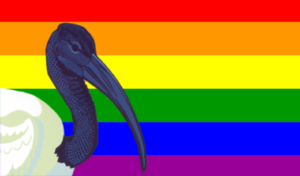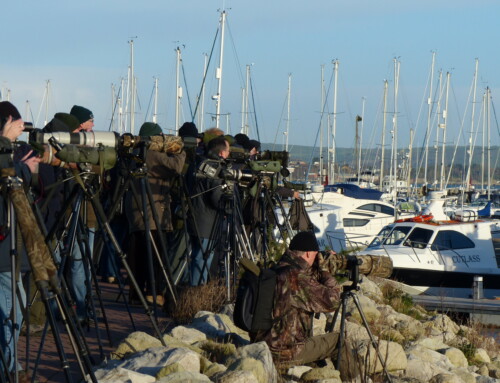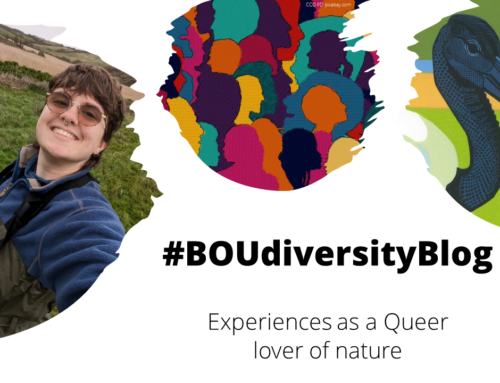 I’ve learned to be a better LGBT Ally by asking for help.
I’ve learned to be a better LGBT Ally by asking for help.
OK, I have to admit that until relatively recently I didn’t really understand what being an Ally was. I thought I was one, and to some extent I was. I am. But it took a friend to point out that there is being an ally and being an Ally. The difference might be subtle, but it is important.
So, let’s wind the clock back to my childhood. I grew up with liberal parents with a Black stepdad and wider Black stepfamily. My mother subsequently remarried someone working with Northern Ballet and through him I was then introduced to the diverse community that comes with a ballet company. I don’t ever remember being taught not to be prejudiced, I simply grew up not being so because of my upbringing.
But was I an ally? Back then, certainly not. I just happened to have a Black stepfamily and a wider, diverse group of people I knew through my parents. I was probably simply more accepting than my peers. Oh yes, my peers. What did they think? I don’t recall any racism because I had a Black stepdad, but when it was known that my second stepdad worked in the ballet, then it was open season. I don’t remember it lasting long once the novelty wore off. But I also can’t remember any of my teenage replies, other than F**k off! Or having a discussion with anyone about it. But why would we? We were kids. The boys talked about music, football and girls and the girls talked about music, fashion and boys.
Then something did change. In my mid-teens my then best mate, Eric, revealed to me that he was both gay and that he also liked to dress in women’s clothes (his sister’s to be exact). Eric said he took a chance because he knew that “I knew some gays in the ballet” and because he’d never heard me saying anything against them. So, he told me. But like he said, I did ‘know some gays in the ballet’ and I was fine with him. I was ‘fine’ to the extent that on one occasion he and I dressed up as women to go to a local fancy dress competition. We won joint first prize. He told me some weeks later that it was the closest he’d ever felt to being his true self in public. At the time I didn’t understand the enormity of this, but it was clearly massive for Eric. The last time we spoke he told me that my friendship, my acceptance of him was, without question, the start of him coming out and being openly gay.
Looking back, I ask again, was I an Ally or ally? I was clearly an Ally to Eric, but nothing wider. But also looking back, wasn’t homophobia a default setting for most in the 80s? It’s little wonder Eric never came out until much later thinking back how rife homophobia was at that time around HIV/AIDS.
So, even with my liberal upbringing I was merely an accepting friend not an Ally to the LGBT people I knew.
Recently, this began to trouble me, so I asked a queer friend about being an Ally. She told me I was a great friend, a good ally but not a true Ally. She shamed me by saying that I was quick to confront racism, but she couldn’t recall me confronting prejudice against LGBT folk. She was right. Her view was that to be a true Ally you need to be seen to be an ally, that actions do speak louder than words – although on social media we often only have words.
Suitably chastened I vowed to do better. To be an Ally not just to my gay friends, but to the LGBT community, both personally and professionally.
And professionally is where I feel I am in a position to do something. Running the BOU I have some influence over what it does. As a member of its Equality & Diversity Working Group (EDWG) I also had a vehicle to deliver on this. So, I pushed from within to get the BOU to move more quickly on LGBT matters in particular. To do this we increased the size and breadth of the working group earlier this year and that gave me the support and, more importantly the knowledge I lacked. Working closely with EDWG members Daniel Hayhow and Ash Sendell-Price we quickly developed this Rainbow Blog series (using Daniel’s experience around a similar idea he was involved with when at the RSPB) which we hope to use as a springboard for the BOU’s ongoing LGBT work.
Those of us on social media can use our words, and symbols, or emojis to be more precise, to show our Allyship. At the Rainbow Lorikeets @RainbowLors LGBTQIA+ event at the recent NAOC2020, I asked a question about what LGBT folk felt about non-LGBT folk using the Rainbow Flag to denote they are an Ally. I was told that if I could handle people thinking I was gay then do it. And I can handle what others think 🙂
To be truly honest, it’s only now that I’m working with Daniel, Ash and the other EDWG members and having sought answers from friends that I truly understand the meaning of being an Ally. It’s only by engaging more personally with Rainbow Blog contributors that I am learning more about them as individuals, about their experiences as queer ornithologists, their own views of the LGBT community, how comfortable or not they feel within the wider ornithological community and society as a whole.
Just knowing LGBT folk is not understanding them. It’s not being a true friend. It’s not being a true Ally. For me personally this process has been both enabling and rewarding. I’ve learned how to be a better Ally by asking my friends just how I can do that.
If you are interested in contributing to our Rainbow Blogs, please get in touch with us via this form which ensures anonymity for those who seek it.
If you want to learn more about LGBTQIA+, then Stonewall is a great place to start.




